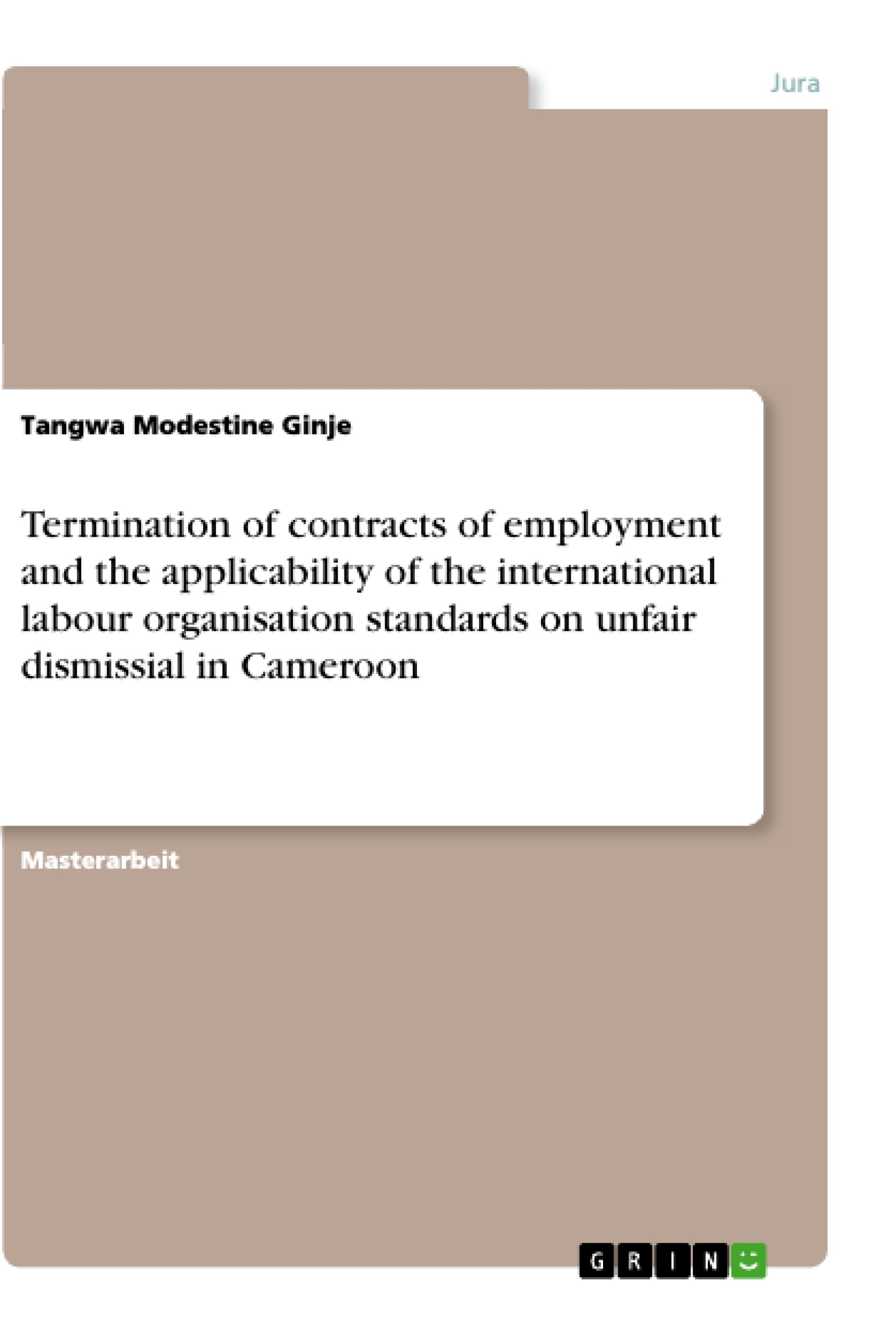The following research questions will be answered in this thesis: How are employment contracts terminated in Cameroon? Do Cameroon laws on unfair dismissal take into consideration the ILO standards on termination of employment contracts? What mechanisms and remedies have been put in place to afford adequate protection of worker’s rights in the case of unfair dismissal?
What policy proposal can be proffered as solution to the questions raised?
Inhaltsverzeichnis
- CHAPTER ONE
- 1.1 Background to the Study...
- 1.2 Statement of the Problem......
- 1.3 Research Questions.....
- 1.4 Research Objectives.......
- 1.4.1. Main objective
- 1.4.2 Specific objectives ......
- 1.5 Research Methodology
- 1.6 Justification........
- 1.7 Significance of the Study.
- 1.8 Literature Review
- 1.9 Theoretical Framework …………….
Zielsetzung und Themenschwerpunkte
Diese Arbeit untersucht die Beendigung von Arbeitsverträgen in Kamerun und die Anwendbarkeit der Normen der Internationalen Arbeitsorganisation (ILO) zur unzulässigen Entlassung. Sie beleuchtet die aktuellen Praktiken in Kamerun und analysiert, inwieweit die ILO-Normen in der Praxis umgesetzt werden.
- Die Auswirkungen des „Willkürprinzips“ bei der Beendigung von Arbeitsverträgen in Kamerun.
- Die Rolle der ILO-Konvention Nr. 158 von 1982 bei der Regulierung der Beendigung von Arbeitsverträgen.
- Die Herausforderungen bei der Umsetzung der ILO-Normen in Kamerun.
- Die Auswirkungen der mangelnden Aufsicht und der unzureichenden Durchsetzung des bestehenden Rechts auf die Bekämpfung von unzulässigen Entlassungen.
- Die Suche nach Lösungen zur Verbesserung des Schutzes von Arbeitnehmern vor unzulässigen Entlassungen.
Zusammenfassung der Kapitel
Kapitel Eins: Allgemeine Einführung
Das erste Kapitel legt den Hintergrund der Studie dar, identifiziert das Forschungsproblem, formuliert die Forschungsfragen und -ziele und beschreibt die angewandte Forschungsmethodik. Es befasst sich auch mit der Rechtfertigung und Bedeutung der Studie sowie mit der Literaturübersicht und dem theoretischen Rahmen.
Schlüsselwörter
Schlüsselbegriffe dieser Arbeit sind: Beendigung von Arbeitsverträgen, Kündigung, Arbeit, unzulässige Entlassung, ILO-Konvention Nr. 158.
- Citar trabajo
- Tangwa Modestine Ginje (Autor), 2018, Termination of contracts of employment and the applicability of the international labour organisation standards on unfair dismissial in Cameroon, Múnich, GRIN Verlag, https://www.grin.com/document/1031634



